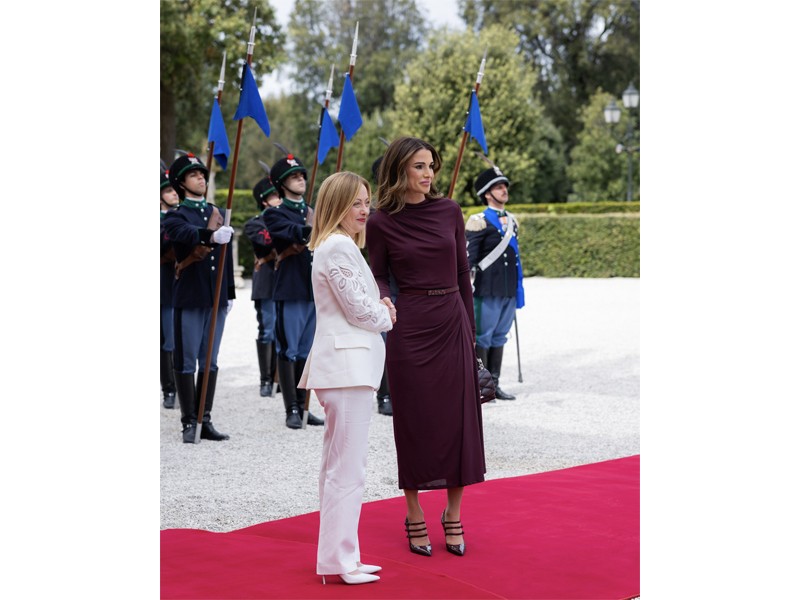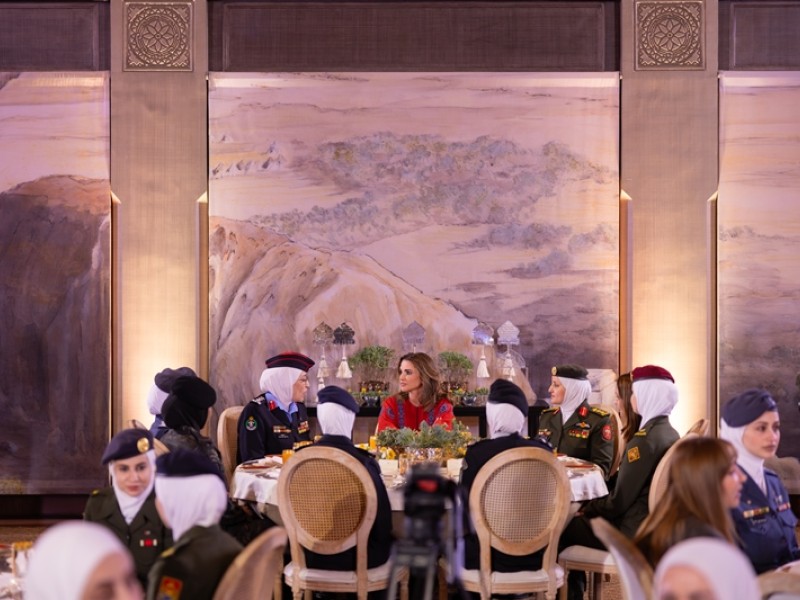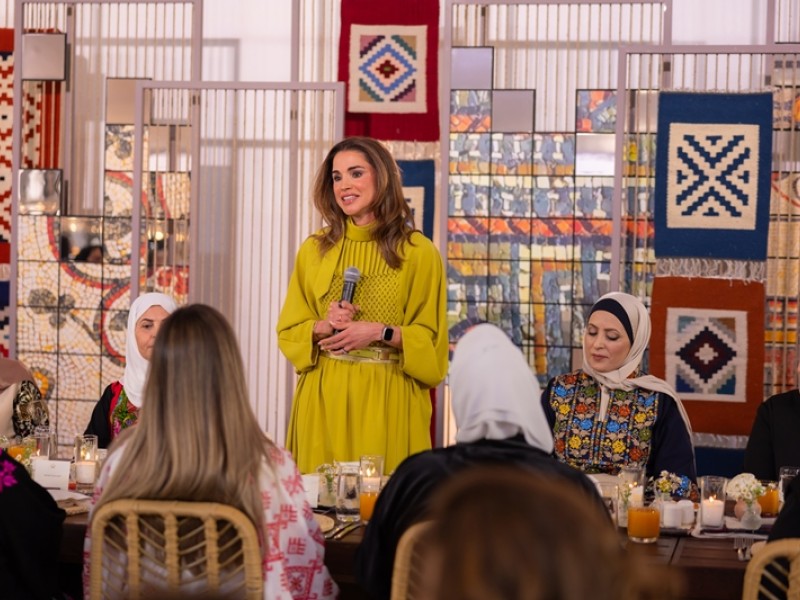Queen Rania Urges International Community to Employ Human Understanding, Personal Intelligence When Tackling Global Challenges at the 30th Ambrosetti Conference in Lake Como
(Office of Her Majesty Queen Rania Al-Abdullah-Press Department)Her Majesty Queen Rania Al-Abdullah, on Friday, underlined that it is through human contact and interaction and through building bridges of understanding that we can actually really get to know one another and increase the level of tolerance, thereby realizing that there is much more that unites us rather than separates us.
Speaking during the plenary session of the 30th Ambrosetti Conference, entitled Intelligence 2005 on the World, on Europe, on Italy, Queen Rania called on the international community to utilize ‘human understanding’ and ‘personal intelligence’ to overcome the challenges of today’s world
The three-day event, held at the Villa d’Este at Lake Como, Italy, aims to ensure unique and effective professional solutions in strategic and operational management consultancy, as well as continual professional up-dating and research in this age of acceleration and global competition.
Addressing Heads of States, government officials, business leaders, Nobel laureates and other influential personalities from the region and around the world attending the Conference, Queen Rania’s remarks focused on three simple yet powerful ideas, beginning with the “universality of human nature”.
“Human nature is everywhere and through all eras the same,” said Queen Rania. “That,” she added, “may seem an odd thing to suggest in a world where scholars, politicians and the media all seem preoccupied with our differences, and where social, religious and economic differences do indeed appear to be profound”.
In spite of its oddness, Queen Rania argued, it is “true” and “fundamental”.
Intelligence, she said, is of no good, if it is not based on an understanding of “basic humanity”, adding that without such understanding, “intelligence has, at best, limited use”.
The second idea the Queen laid out is the “universality of fundamental religious beliefs”. Religions, she noted, may describe ideas differently, but have the same core ideas. She also emphasized that “morality is a matter of human understanding and respect”.
The need for understanding such beliefs, Queen Rania stressed further, has never before been so great.
Queen Rania also pointed out that the “technological miracles” such as the internet and global media, created with the intention of bringing people closer together, are having an adverse effect, saying: “…we are at risk of ever-increasing numbers of people having information without context, contact without communication”.
Therefore, information obtained from such mediums, must be utilized to “understand our cultural and religious differences”, she added.
“We cannot use intelligence to its fullest potential if it increases—rather than decreases—the surface divisions that characterize different nations,” she continued.
Citing the Kingdom’s efforts taken in this regard, Queen Rania also spoke of the Amman Message, issued last November, during the Holy Month of Ramdan, which, in Queen Rania’s words, “focused on the value Islam places on moderation, social equality and respect for human life”.
In her remarks, Queen Rania also shed light on how Jordan is working to change the global perception of Islam, with His Majesty hosting an international Islamic conference in July of this year, where “scholars from all eight schools of Islamic thought came together to call for moderation, tolerance and equality”.
“In spite of long-standing theological differences, the scholars agreed unanimously on the basic principles of Islamic belief and practice,” said Queen Rania.
She went on to add that they also “sharply criticized religiously motivated violence” and “reiterated the need for dialogue among the eight schools of Islam”.
Reinforcing the notion that such ideas are the cornerstone of all religions, Queen Rania said: “Moderation, tolerance, and equality are not simply Muslim ideals or Christian ideals. They are human ideals. And they should be used to unite, not divide, the world’s peoples.”
The third idea put forth by Queen Rania was that of the universality of intelligence.
“Intelligence, at least in the forms we typically measure, can, in other words, be taught,” she said.
Such a notion, Queen Rania reiterated, provides the basis of several questions, including why some people strive to acquire learning when others do not; why some are motivated to learn and others are not; how social policies and systems can better serve people and how societies can perceive human understanding in the same manner and with the same significance they do technological, scientific, literary and historical understanding.
The answers to the above can be found in using “personal intelligence to strengthen our mutual understanding,” asserted Queen Rania.
Without such understanding, she affirmed, the numerous advances people make to solve the world’s problems could instead be used to “sow hatred and even to inspire ever-increasing violence”.
Concluding her remarks, Her Majesty urged the audience to “focus on the role intelligence plays in allowing us to converge”, at the day-to-day level, as it is this “convergence”, she says, which will form the basis of a future filled with hope, and indeed, much needed security.
A yearly forum which gathers world leaders and influential personalities from around the world, the Ambrosetti Conference was founded by Alfredo Ambrosetti in 1975.
This year’s speakers include Amr Musa, Secretary-General of the Arab League, José María Aznar, Former Prime Minister of Spain, Shimon Peres, Deputy Prime Minister of Israel, Wim Kok, Former Prime Minister of the Netherlands, Saeb Ereikat, Palestinian Chief Negotiator and Juwan Fouad Masum, Iraqi Minister of Telecommunications.
The conference agenda tackles a variety of subjects dominating the international arena, including the world’s economic outlook, scientific and technological developments as well as the ‘energy challenge’. It also includes a specific session on India and one on the European Union’s institutional developments.
Featured
Queen Rania's official website
This website does not support old browsers. To view this website, Please upgrade your browser to IE 9 or greater
Your browser is out of date. It has known security flaws and may not display all features of this and other websites. Learn how to update your browser



